One of the main obstacles to introducing a more climate-friendly food culture in Denmark is the many everyday barriers. So says Professor Bente Halkier, who researches everyday life and sits on the Danish Council on Climate Change. Instead of moralising, we should focus on normalising a more climate-friendly diet.
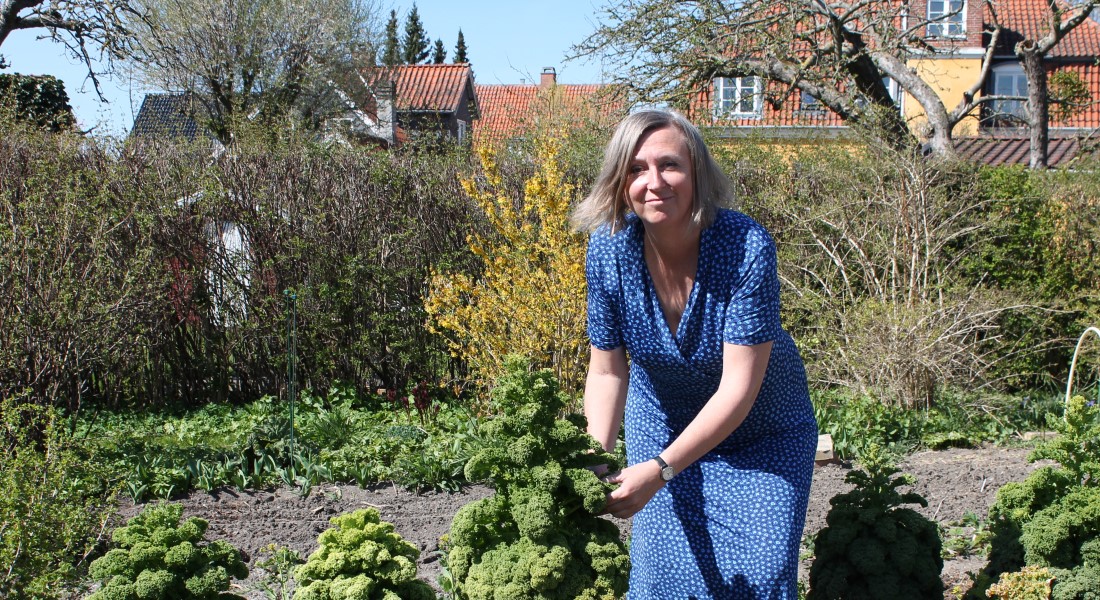
 Portrait series: The climate researchers
Portrait series: The climate researchersIn a series of portraits, we go behind the diverse climate-related research that takes place at the Faculty of Social Sciences' five departments and many research environments.
The portrait of Bente Halkier is the fourth in the series.
On paper, the potential is huge: A new report from the Danish Council on Climate Change concludes that we can almost reduce the environmental impact of agriculture by half by 2050 if people all over the world switch to a more sustainable diet - i.e. a diet characterised by less meat and more greens.
In reality, that is easier said than done. Even though most people know that carbon emissions from beef production are much higher than those resulting from potato production, we may still pick up the minced meat in the supermarket on our way home from work and leave the root vegetables for some another day.
This contrast between what we know is best and what we do has been the focus of much of Bente Halkier's research - a form of everyday sociology that she has introduced into the Danish Council on Climate Change, where she since 2020 has contributed with insights into how our habits and routines strengthen our everyday consumption choices.
We assume that as long as we give people the information they need, they will ultimately change their behaviour. They do not!
This is something climate policymaking has ignored, Bente Halkier argues:
"We have not invested much in everyday life research, and that is probably because we believe that 'we know what we are doing when we go grocery shopping'. Besides, focus has traditionally been on other measures, e.g. information campaigns. We assume that as long as we give people the information they need, they will ultimately change their behaviour. They do not!"
How do we respond to dietary changes?
Bente Halkier's own research has shown that people typically respond in one of three ways to efforts to promote climate-friendly food:
- A minority of the population is already extremely climate-conscious, and they consider changing their food habits a positive challenge. Nevertheless, like everyone else, they sometimes face everyday obstacles.
- Another minority simply refuses to change their food habits, either because they "do not want people to tell them what to eat," or because they do not see how their acts matter in the big picture.
- In-between you have the majority, who takes a relatively pragmatic approach to climate issues, and who in the words of Bente Halkier is likely to think: "Oh right, we also need to fix the climate. I will add some vegetables to that bolognaise."
According to Bente Halkier, the many politicians, organisations and experts wanting to change people's behaviour should be much more aware of the everyday life obstacles - i.e. the many routines and conditions that prevent us from switching to a greener diet. This also applies to the climate-conscious consumers:
"The family member responsible for grocery shopping and cooking does not single-handedly get to decide what the family eats. All members of the family have a say, including the children, whose influence on the family's food consumption is far greater today than it used to be. So a decision to eat less meat or only buy organic foods has to be negotiated in the family. It can cause its own problems. Some family members may argue e.g. that they do not feel full after eating food containing no or only small amounts of meat. So intentions to change the family's food consumption are likely to encounter various obstacles."
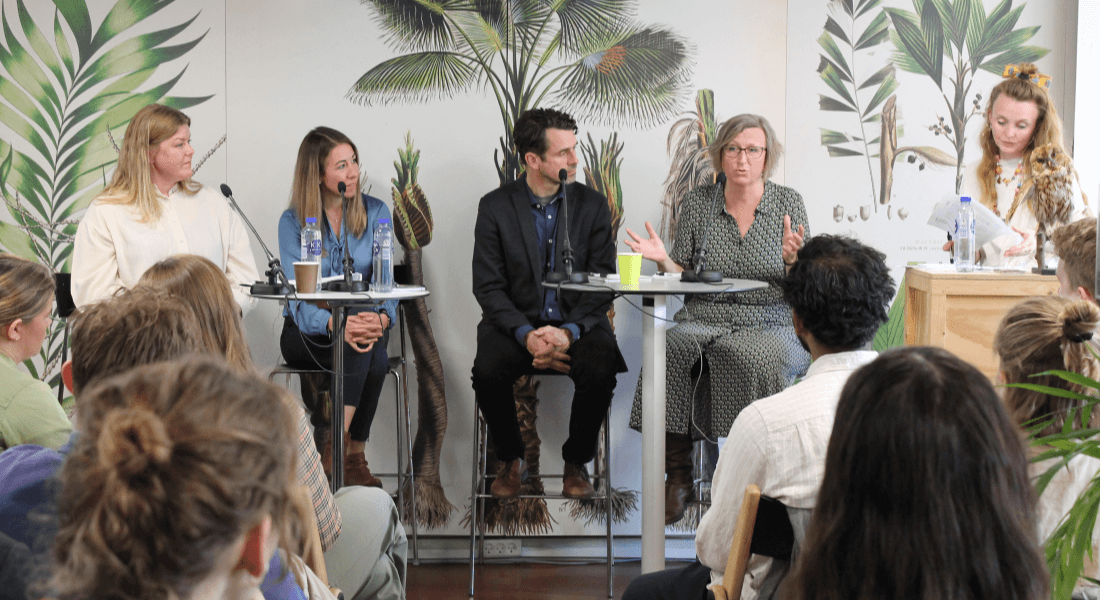
Do some of us even lack the tools to change our everyday food habits?
"In Denmark, we have a very meat-oriented food culture: We tend to eat meatballs with accompaniments, fried pork with accompaniments, chicken with accompaniments. Therefore, reducing our meat consumption is not as easy as some policymakers may think. And that is one of the reasons why we are seeing all those meat substitutes that are meant to help the consumers who feel they need a 'stepping stone'. Besides, a lot of people do not really care what they eat. They don't say 'Let's replace the meat flavours with mushrooms or sundried tomatoes.'"
So changing an entire food culture is not just a matter of making people stop undesirable behaviour - such as eating a lot of beef - but also about acquiring new skills?
"Exactly. To do so, the individual citizen must feel competent and experienced. Most people who cook have a backlist of maybe 20 dishes. Efforts to introduce a more climate-friendly food culture should focus on renewing that backlist to enable the individual citizen to buy groceries for dishes they know work and are popular at home."
Greener canteen food can help us change our behaviour
Because habits and routines largely control what we eat, 'normalisation' is the key to effective behavioural change. Information campaigns, nudging and regulation in the form of taxes and regulation (see box) will get you part of the way. But if you really want to change social practice, you need to make sure behavioural change comes both easy and naturally to the individual citizen.
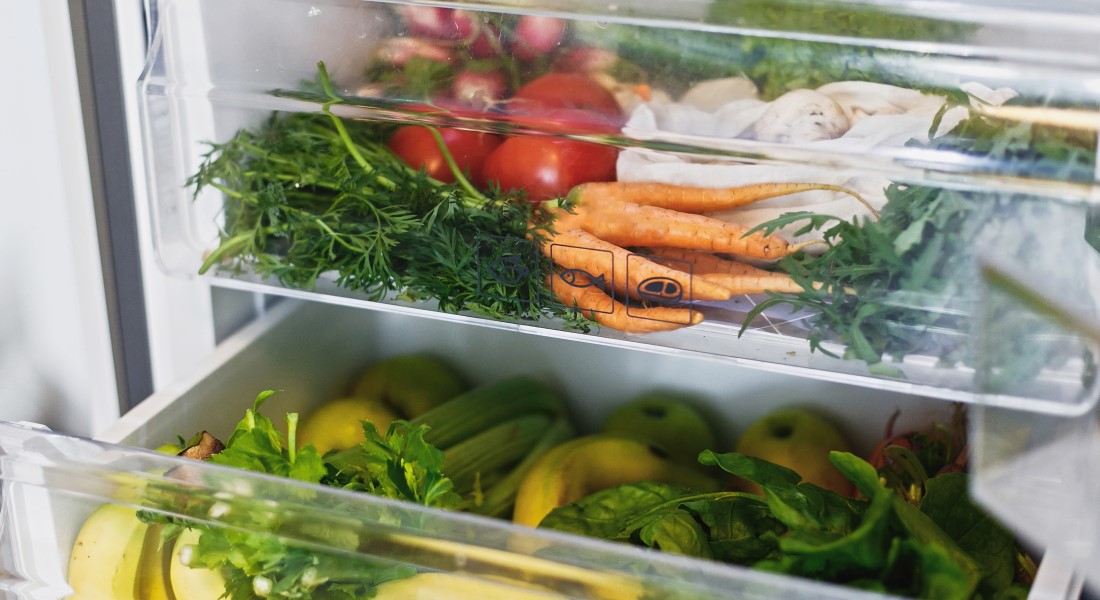
Bente Halkier likes to distinguish between three 'shelves of instruments' available to those seeking to drive consumer behaviour in a more climate-friendly direction.
Individual-oriented measures: Here measures such as taxes, information and nudging are introduced to seek to change the behaviour of the individual citizens, as the individual citizen is considered the main player.
Institution-oriented measures: Here institutional operators lay down a formal framework for consumers' and companies' behaviour by introducing new legislation, standards and guidelines.
Social practice-oriented measures: Here focus is on understanding how people actually behave with a view to removing barriers. The goal is to make it both easier and normal to change behaviour. This shelf therefore includes 'normalisation' of green food habits, which is central to Bente Halkier's own climate-related research.
The three shelves may overlap. E.g., climate taxes targeted at individual consumers is both an individual-oriented measure and an institution-oriented one as it requires legislation.
"A good example is public kitchens or large companies starting to offer more climate-friendly food. The advantage to such measures is that people do not have to commit themselves, look for recipes or acquire the competences to prepare the food. They can just walk into the canteen and choose a dish, and when they leave they will have learned that green food can be both tasteful and filling," Bente Halkier explains.
"And if some public kitchens can be persuaded to attach a simple recipe to the dish or introduce takeaway, changing our behaviour for the greener would be so much easier."
According to Bente Halkier, such collective solutions have the added benefit of bringing people closer together and can thus change norms across social groups:
"People realise that they are not the only ones eating climate-friendly food. The blacksmiths from Section C and the nurses from the anaesthesia department do it too. Through public kitchens we can reach out to new groups and not just those committed middle-class people."
Others would argue that to make climate action matter, we need to adjust the key economic policy levers, e.g. by taxing climate-unfriendly products such as meat. What is your view on that?
"Taxes are a useful tool, because they affect parts of our everyday behaviour. And that is why everyday sociologists such as myself do not dismiss the effect of rising prices. But not all parts of our everyday behaviour are controlled by financial rationality and price mechanisms: habits, identity, norms, culture etc. You cannot change those with financial or informative measures only."
It does not help to moralise or shame
While some people are extremely idealistic when it comes to climate-friendly solutions, others are very negative. Don't you think we risk polarising the population on climate issues?
"Of course, there is always that risk in the social media, but I do not think it is significant in Denmark."
Why not?
"Because, after all, we have a democratic tradition for tolerating some degree of diversity. We have a series of different political parties, and the population largely trusts the state. This suggests that in Denmark the risk of 'yellow vests' (French protest movement) is not high," Bente Halkier argues.
One of the measures that has no effect when it comes to changing norms and habits is forcing people to do something and pointing moral fingers at them.
But she does warn against adopting a moralising tone in efforts to change people's way of life.
"One of the measures that has no effect when it comes to changing norms and habits is forcing people to do something and pointing moral fingers at them. We need to make sure climate policy tools do not resort to finger-wagging. Besides, these people often belong to groups that are socioeconomically disadvantaged and thus have fewer options when it comes to introducing everyday life changes."
What would you say to people who may well understand the overall climate agenda, but who do not really want to say goodbye to parts of their food culture - from gourmet food to everyday food?
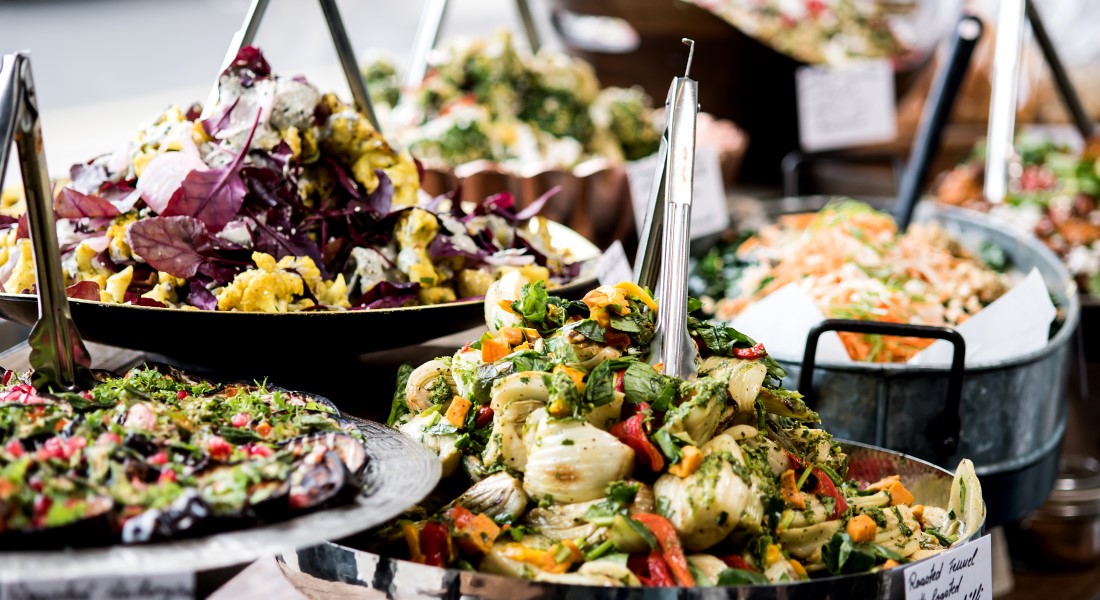
Bente Halkier was one of the driving forces behind the Danish Council on Climate Change's report 'Climate-friendly food and consumer behaviour', published in December 2021.
Central to its guidelines is the recommendation that the state, regions and municipalities should make public kitchens serve climate-friendly food in order to normalise a climate-friendly diet in the population. At the same time, the Danish Council on Climate Change recommends that climate-friendly food efforts be based on the official Danish dietary guidelines, which constitute a useful point of orientation for the transition to more climate-friendly food towards 2030.
Other recommendations include creating a national climate database containing information on the climate impact of different foods, a state-controlled labelling scheme and consumption taxes on certain foods with a high carbon footprint.
"Even though I know that beef can play a key role in both gourmet and everyday food cultures, I choose to follow in the footsteps of the Danish think tank Concito, whose studies show that you get the greatest climate effect from reducing, not removing, foods like beef to a minimum. In fact, you get a smaller relative effect from avoiding meat altogether."
"Therefore, our recommendation in the Danish Council on Climate Change for e.g. public kitchens (see box) is not to switch to a fully vegetarian menu. We aim to follow the official dietary guidelines, which allow a small amount of meat. Flexibility is key here."
To what extent are experts such as yourself, e.g. members of the Danish Council on Climate Change, responsible for communicating this information in a way that bridges the gap between social groups?
"We have a huge responsibility! I always strive to use words that do not criticise or hold certain groups responsible."
Is that why the Danish Council on Climate Change's new recommendations regarding climate-friendly food avoid words such as 'veganism' and 'vegetarianism'?
"Exactly. Surveys show that only around five per cent of the Danish population consider themselves vegetarians or vegans. However, surveys also show that a really large part of the population does worry about the climate and want to help turn things around."
---
Sociologist focusing on the climate
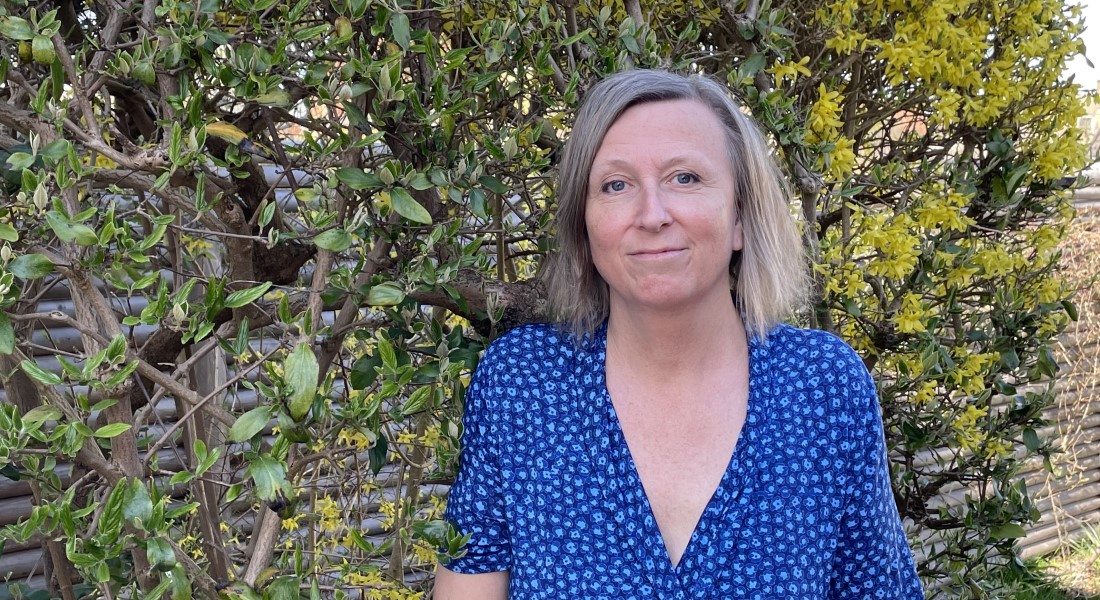
Bente Halkier is a professor at the Department of Sociology. Her research has always had a focus on everyday life and consumption, but she has also conducted research within the fields of knowledge, media and culture sociology.
In July 2020, Bente Halkier became a member of the Danish Council on Climate Change as an expert in behavioural research. The Council is an independent body of experts that advises the Government on the transition to a low-carbon society, and its members are popular speakers at debates and events all over the country.
But Bente Halkier considers herself a sociologist first, a climate researcher second. That means a researcher who studies the effects of the climate crisis on various social groups and their ways of life.






